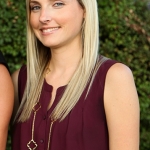 If your child has challenging behavior, where do you turn? Typically, we look to professionals at school or in the community. You might start with an evaluation, enroll your child in a program, or even qualify for in-home services, depending upon where you live.
If your child has challenging behavior, where do you turn? Typically, we look to professionals at school or in the community. You might start with an evaluation, enroll your child in a program, or even qualify for in-home services, depending upon where you live.
But, what happens when the professionals don’t help? When they think they know what to do, but are actually making things worse? What if what works for some kids doesn’t work for yours?
That’s what Barbara and I asked ourselves. Every day. For four years.
We worked with children and teens who had significant needs, psychiatric diagnoses, and were often hospitalized as a result. A notable portion of the children we worked with had been adopted, many from neglectful or abusive circumstances. We spent hours with families each week trying to help. Barbara and I noticed what worked for some kids did not work for all, particularly those who had been adopted. They were unique.
School was a similar story. We sat side-by-side with parents during meetings and listened to the teacher reel off all the problems he causes in class and everything he “can’t” do. We heard them criticize, suggest that he has a choice in how he acts, and question the parents on his medication regimen.
We’ve watched therapists educate parents on the use of behavior charts and create an intricate system of consequences and rewards. We have seen our kids try desperately to fulfill the expectations, only to sabotage their success on the last day.
We started to push. And read. And push a bit more. What’d we learn? Traditional strategies don’t work for our kids. In fact, they often increase the very behaviors we’re trying to help change.
We shared this information with everyone who would listen. Supervisors. Administrators. Therapists. Teachers. Special education chairpeople. It was disheartening to hear over and over, “well, this is what we have to offer,” when we explained the unique needs of our clients did not fit within the available programs or support services. They weren’t getting it.
Enough was enough. So, we created Project Bond. It is the culmination of our passion, knowledge, and drive to help adoptive families thrive by providing access to effective supports.
In our experience, kiddos who were adopted and display challenging behaviors need a specific type of support. They need support that does not involve behavior charts, time-outs, or criticism. Their families need the support of professionals who do not imply that they are failing to “set limits” or “hold them accountable.” They need the support of professionals who truly listen, understand, recognize their struggles, and genuinely want to help.
Earlier this year, we surveyed adoptive parents to determine how we could best be of service. Of the parents who felt they could use more information to help their children, here’s what we found:
- 81% were interested in parenting strategies
- 69% were interested in self-care/stress management
- 44% felt their child’s team members (i.e. teachers, counselors, case managers) would benefit from additional training
- 38% wanted more information on treatment options
Eighty-one percent faced challenges in parenting their children. Eighty-one percent. Honestly, we weren’t surprised. It’s hard… really hard. When daily life is laced with landmines and the slightest change (ahem, it’s Tuesday morning and I have waffles on Tuesday… why are there no waffles?!) can trigger earthshattering panic, you can start to feel stuck. You can start to feel like no matter what you do, it’s wrong. Nothing works. Nothing helps. And all you want to do is give up.
But, you don’t. And you never would.
Instead, you can start to explore alternative approaches. You can surround your child and your family with professionals who get it. We help families crawl out of the war zone towards a brighter future. You deserve a more peaceful home and, as dark as it might seem right now, with the right support – you can create it.
Don’t go it alone – join us for our upcoming Parenting from the Inside Out Workshop in New York, “like” us on Facebook, or shoot us an email. We’ll take this journey together.
 Barbara DiGangi is a Licensed Master Social Worker and studied Social Work with a concentration in Advanced Social Policy at New York University. Barbara has over seven years of experience working intensively with children and families addressing a variety of issues from family dynamics and Reactive Attachment Disorder (RAD), to Autism and depression. While working with adoptive families, she found herself helping families understand attachment and began seeing results in her clients through this approach. Barbara’s “why” for Project Bond is to ensure all people develop the capacity to have fulfilling and healthy relationships, and also to advance the tremendous, positive impact attachment can potentially have on societal issues.
Barbara DiGangi is a Licensed Master Social Worker and studied Social Work with a concentration in Advanced Social Policy at New York University. Barbara has over seven years of experience working intensively with children and families addressing a variety of issues from family dynamics and Reactive Attachment Disorder (RAD), to Autism and depression. While working with adoptive families, she found herself helping families understand attachment and began seeing results in her clients through this approach. Barbara’s “why” for Project Bond is to ensure all people develop the capacity to have fulfilling and healthy relationships, and also to advance the tremendous, positive impact attachment can potentially have on societal issues.
 Meredith Silversmith is a Licensed Marriage and Family Therapist and obtained her Master’s degree at Hofstra University. She has been providing services to families in their homes and communities since 2004. Meredith has worked with individuals as young as five through adulthood with a variety of mental health diagnoses and developmental disabilities. It became apparent that traditional strategies were ineffective or counterproductive. After educating herself and implementing the approaches of leaders in the field, Meredith began to see positive changes in her clients. Her belief in the lifelong impact of one’s early experiences on individuals and their relationships is driving her involvement in Project Bond.
Meredith Silversmith is a Licensed Marriage and Family Therapist and obtained her Master’s degree at Hofstra University. She has been providing services to families in their homes and communities since 2004. Meredith has worked with individuals as young as five through adulthood with a variety of mental health diagnoses and developmental disabilities. It became apparent that traditional strategies were ineffective or counterproductive. After educating herself and implementing the approaches of leaders in the field, Meredith began to see positive changes in her clients. Her belief in the lifelong impact of one’s early experiences on individuals and their relationships is driving her involvement in Project Bond.
